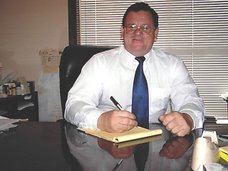Winning Defense Themes - Prepare the End Game First
The general idea for this comes from the NACDL seminar materials.From: "What it Takes to Win Your Case" - "Themes, Theories, andFacts Beyond Change" by Richard Tegtmeier, Colorado Springs, CO, presented Nov. 2002, in Chicago, IL.
It suggests the idea of preparing for a trial by: If you know where you are wanting to go or the final destination, then you can determine what you need to do to get there or what route to take.
Where do you want to go?
If you know what you want to say in the closing argument, then you will know what you have to prove to get there.
1. First look at the jury instructions that you want the jury to be given for your client's theory of the defense. Don't try to force a defense into the trial if it doesn't ring "true." Be consistent. If your client ran a red light which resulted in a death but was not intoxicated, admit your client ran a red light which resulted in death but that he was not intoxicated. Be consistent. (Manslaughter -felony vs. Negligent Homocide - misdemeanor)
2. Argue a powerful defense and not a negative defense. Don't argue --- the state failed to prove it's case---- which implies --- my client is guilty but let him off because the state failed to prove the case ---Instead argue that the client lacks the intent or that they have the wrong man or that he is innocent or innocent of the charged offense. However, what-ever the defense has to ring true to the jury and be consistent with the facts. When you look at the facts use your own intuition and your emotions. Most juries react emotionally to the facts. You must anticipate their emotions. Use your intuition and your emotions. You may want the jurors to "associate" with the emotions of your client. Success with a jury can be related to how well the jury relates to the client's reactions, decisions, and feelings in the case.
3. Next go to closing argument. Ask yourself what you want to be able to tell the jury when you stand to give them the reasons for finding your client not guilty. Give a synopsis of your closing to non-lawyers and ask them their opinion. What they think of your theory and why people would react the way your client reacted. When you run these questions by ordinary people, you will see the natural reactions of people to life circumstances and their gut-level reaction to the case will give you insight that is GENUINE,CLEAR, AND HONEST.
If you know what you want to say in the closing then you will know what you have to prove to get there. There are certain "facts beyond change" or core facts that cannot bechanged in any case. Your theory of defense must be consistent with these "core facts."
Jurors decide cases based upon emotions or their gut-level instincts. Every case has a "dominant" emotion. Determine what that dominant emotion may be or could be. If the theory is self defense --- ask questions during jury selection relating to that dominant emotion --- Tell your investigator what your theory of the defense is and what you expect to argue during closing argument and what jury instructions you anticipate so that the investigator can find facts in support of the theory of defense.
We live in a world of 15 second sound bites and themes and the jury expects them. Decide what your theory of defense will be and design some short sound bites and themes for the jury. Be consistent with the core facts and the emotions. Most juries decide the cases primarily based on instinct and emotions. The law and the facts are secondary. Tell the jury your defense theme and defense sound bites just like you would talk to a friend. Be human.
Your client is a human being. You are his or her primary mouth piece. Your client's freedom, future, and life --- depends upon you and you must be able to articulate your client's story and explain the life circumstances in detail of your client. Your client is a human being and not a monster and sometimes you may have to say to the jury ---- my client is a human being and not a monster.
Winning Defense Themes - Prepare the End Game First
Subscribe to:
Post Comments (Atom)

No comments:
Post a Comment